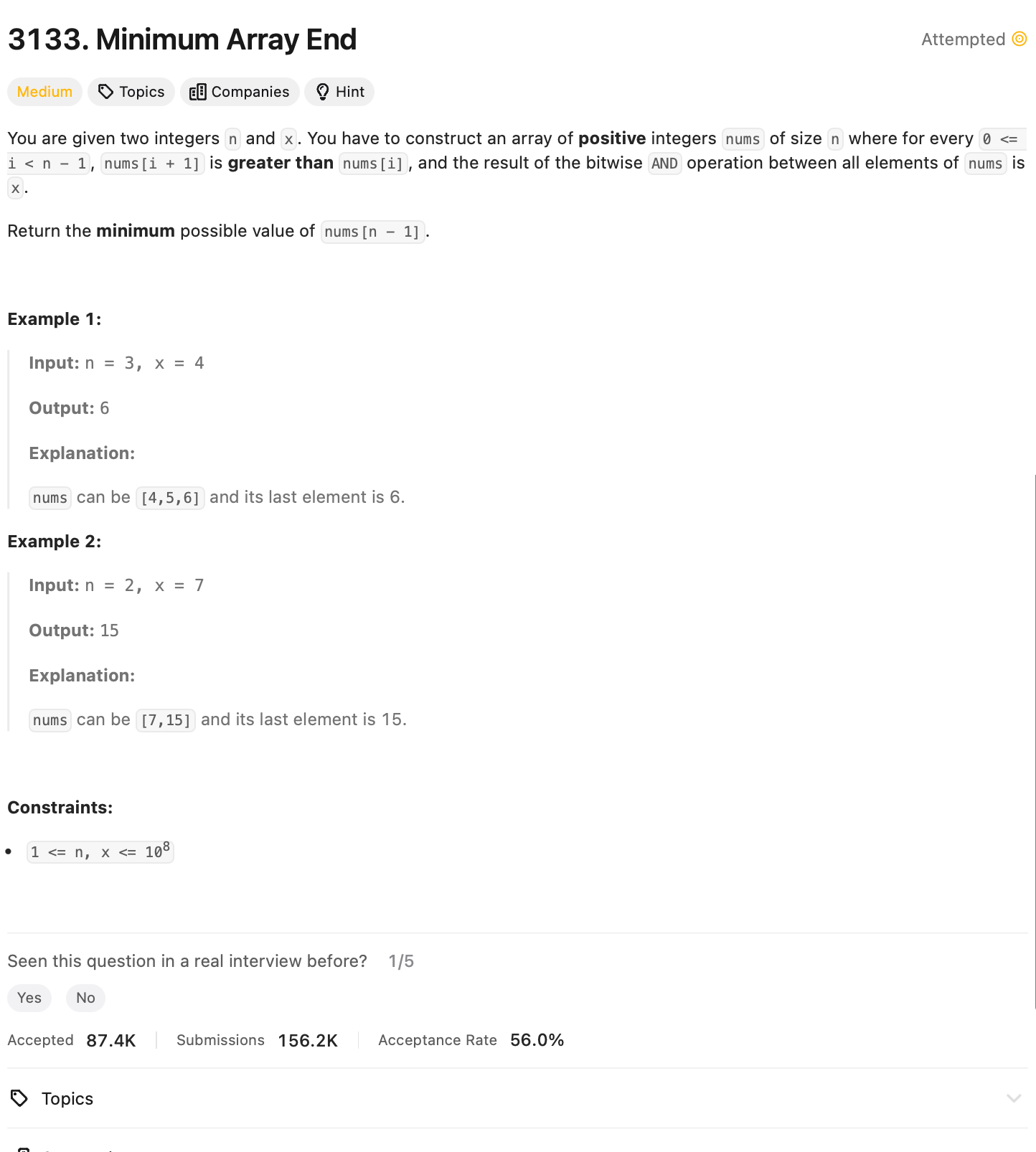Problem Statement

Brute Force [TLE]
class Solution:
def minEnd(self, n: int, x: int) -> int:
curr = x
num = x
while n > 1:
curr += 1
num = x & curr
if num == x:
n -= 1
return curr
Editorial
Approach 2: Bit Manipulation and Binary Construction
class Solution:
def minEnd(self, n: int, x: int) -> int:
result = 0
# Reducing n by 1 to exclude x from the iteration
n -= 1
# Step 1: Initialize lists to hold the binary representation of x and n-1
binaryX = [0] * 64 # Binary representation of x
binaryN = [0] * 64 # Binary representation of n-1
# Step 2: Build binary representations of x and n-1
for i in range(64):
bit = (x >> i) & 1 # Extract i-th bit of x
binaryX[i] = bit
bit = (n >> i) & 1 # Extract i-th bit of n-1
binaryN[i] = bit
posX = 0
posN = 0
# Step 3: Combine binary representation of x and n-1
while posX < 63:
# Traverse binaryX until we find a 0 bit
while binaryX[posX] != 0 and posX < 63:
posX += 1
# Copy bits from binaryN (n-1) into binaryX (x) starting from the first 0
binaryX[posX] = binaryN[posN]
posX += 1
posN += 1
# Step 4: Rebuild the final result from the combined binary representation
for i in range(64):
if binaryX[i] == 1:
# convert binary bit to decimal value
result += pow(2, i)
return result
Approach 3: Bitmasking with Logical Operations
class Solution:
def minEnd(self, n: int, x: int) -> int:
result = x
n -= 1 # Reducing n by 1 to exclude x from the iteration
mask = 1
# Step 1: Iterate while n > 0, using mask for bit positions
while n > 0:
# Step 2: If the corresponding bit in x is 0
if (mask & x) == 0:
# Set the bit in result based on least significant bit of n
result |= (n & 1) * mask
# Shift n right by 1 to process next bit
n >>= 1
# Shift mask left by 1 for next iteration
mask <<= 1
return result
